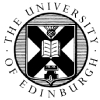Old College, South Bridge, Edinburgh EH8 9YL, United Kingdom
Career Counselling

The University of Edinburgh is a public research university located in Scotland. Its history of excellence, powerful alumni network, diversity of course offerings, and international student enrolment (19,000, or nearly 40%, of the students are classed as overseas) make it a very popular destination: in 2022, more than 75,000 applicants were received for the undergraduate courses alone.
The university is divided into three colleges. The College of Arts, Humanities, and Social Sciences is the largest, with 12 constituent Schools. The Co...
| Establishment year | 1583 |
| Total Students | 49,065 (full-time + part-time; 2022) |
| International Students | 19,080 (full-time + part-time; 2022) |
| QS World University Rankings 2024 | 22 |
| Campus Size | N/A |
| Total Number of Campuses | 5 |
| University Website | https://www.ed.ac.uk |
| No. of Schools and Divisions | 3 Colleges (Arts, Humanities and Social Sciences; Science and Engineering; Medicine and Veterinary Medicine) with 21 Schools within |
| Nobel Prize Winner Alumni | 19 affiliated with the University |
| No. of Courses | 526 (Postgraduate), 378 (Undergraduate) |
| Student to Faculty ratio | 10:1 |
The University of Edinburgh provides undergraduate courses, taught postgraduate courses, and research programmes within its 21 Schools, which are organised into 3 Colleges.
The University of Edinburgh is a sought-after UG and PG destination: Over 75,000 applications were received in 2022 for undergraduate programmes alone. 33% of UG applicants received an admission offer, and the entry to many postgraduate courses is very competitive as well.
The eligibility criteria for applicants to undergraduate courses vary widely by degree. The level of academic performance needed for each degree is shown as a band (from minimum to maximum acceptable grade) on the University website as part of the undergraduate degree finder. A candidate will usually need to be near the high end of this performance band to get an offer. International students can find country-wise entry requirements on the website.
Given the high level of postgraduate education at Edinburgh, applicants to these programmes will need a relevant undergraduate degree in a related subject, with a very good to excellent academic performance rating. Additional country-specific requirements have been collected and summarised on a dedicated University webpage.
Undergraduate applications to the University are made through the Universities and Colleges Admissions Service (UCAS) website. There are three main components to the application: academic qualification records (the requirements for these differ from course to course), a personal statement, and a letter of reference, usually from a teacher or professor.
The application timelines are slightly later than at other universities: most undergraduate candidates need to submit their applications via UCAS before January 25 of the year in which they would like to join, though medical applicants need to apply by October 15 of the previous year. Admission decisions are typically made by the end of April.
Uniquely among the top universities in the UK, the University of Edinburgh offers significant entry-level flexibility to undergraduate applicants: there are processes for candidates to apply after a gap year post school, to transfer from another university, and to apply directly to the second year of many courses.
The process for postgraduate applications differs slightly depending on whether the candidate is applying for a taught course or for a research position. Taught MSc courses can be applied to at any time via the relevant University webpage, but it is always best to apply well before the start of the academic semester, to increase the chances of acceptance. Those who are applying to research courses should contact a supervisor and discuss funding and other requirements before applying online.
In addition, academic transcripts are rigorously scrutinised by the postgraduate admissions department at Edinburgh, and applicants will need to display excellent performance during their UG degree. Candidates should check the equivalent academic requirement based on their country of undergraduate study.
The fees for international students at the University of Edinburgh are significantly higher than the corresponding fees for those from Scotland or the UK.
International undergraduate students typically pay £24,500 per year as tuition fees, on average. Students from Scotland pay less than 10% of this amount, with the average tuition fees amounting to £1,820. UK citizens outside Scotland get a significant reduction as well: their annual tuition fees are £9,250. These numbers are valid for most non-medical students. In contrast, international medical undergraduates pay £35,500 per year during the first three preclinical years, and £49,900 during the last three years of clinical study.,
The tuition fees in postgraduate taught courses differ widely according to the Masters degree opted for, but are typically above £30,000 per year for most popular courses. There is less of a gulf here between Scottish / UK nationals and the rest of the world; students from the UK pay 50% - 67% as much as overseas students do.
Over and above tuition fees, both UG and PG students have to budget for accommodation and living costs, which amount to £10,000 on average per year, if opting for University accommodation.

The University has five primary campuses spread around the city of Edinburgh. The Central Campus has several buildings spread around the city centre; the College of Arts, Humanities and Social Sciences is primarily located here. The King’s Buildings are in the south of the city; the College of Science & Engineering operates mainly out of this 86 acre campus. The BioQuarter, Easter Bush, and Western General campuses are used by the College of Medicine & Veterinary Medicine. Several buildings at the University are historic structures: for example, St. Cecilia’s Hall is a concert venue that is the most ancient in Scotland.
The University of Edinburgh has many health and fitness facilities that are designed to help its 50,000 strong student body keep active and fit. For example, the Pleasance Sports Complex houses a fully equipped gym and indoor climbing venues. The Firbush Outdoor Centre allows all members of the University Community to participate in fitness activities that take place in the open air; - organised runs, jogging routes, and guided walks are all designed to help keep moods upbeat.
The history of sport at the University of Edinburgh is long and glittering: 10 gold medals have been won by alumni, including 6 by Sir Christopher Hoy in cycling. The University also offers sporting scholarships for the best athletes who apply: elite athletes can have their tuition fees slashed by up to £4,000 annually. For the past 15 years, there has been a Sports Hall of Fame, where pivotal figures from the University are recognised for their sporting achievements.

The city of Edinburgh is a major hub for music and comedy in the UK, and the University reflects that, with the oldest music society in Scotland, a student-run opera company, and a drama society that boasts the oldest student-run theatre in the United Kingdom.
The University of Edinburgh equips its graduates with sound academic skills, and this is reflected in the fact that it is ranked in the top 10 in the UK - and the top 25 worldwide - among top targets for companies to recruit from. The Careers Service at the University guides students in choosing the best options based on their profiles, and helps with internship and final placement opportunities, for both undergraduates and graduates; it also helps fund and launch startups, with an average of 30 per year receiving incubation help.
Undergraduates earn, on average, £29,000 within a year after graduating - this is 25% above the typical level for equivalent degrees elsewhere in the United Kingdom. Similarly, PG graduates are placed in the best research and corporate positions in the UK and abroad.
To offset the high tuition fees and living costs at the University of Edinburgh, there are multiple scholarship programs and college funds.
Undergraduate scholarships are primarily of four types:
International students who experience financial inability to pay the full fees may offset part or all of their living costs by applying for financial hardship support, though tuition fees cannot be waived partially or completely through this.
Postgraduate funding options are more diverse. In addition to a 10% tuition fee reduction for PG students who completed a UG degree from the University of Edinburgh, every College has multiple scholarship schemes funded both by the University and by external sponsors.
